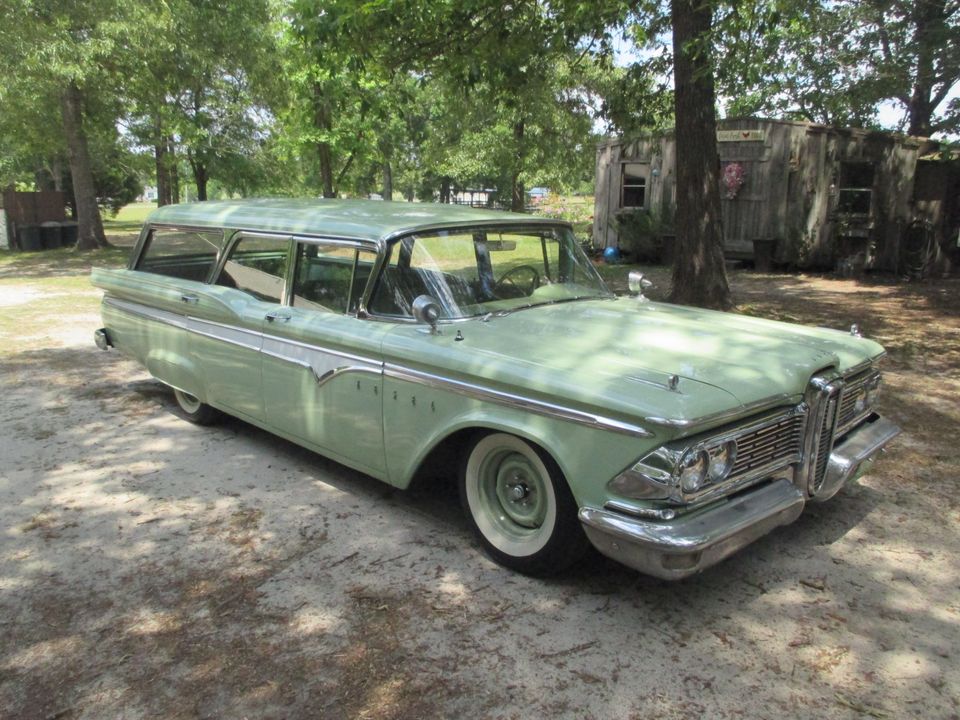
The division left a $250-million hole in FoMoCo’s budget (about $2.5 billion in 2024 dollars), and it’s often described as the automotive industry’s biggest flop. Edsel failed for many reasons, but many cars survived for decades and developed into desirable collectibles. Not only quirky, but these classics are also rare. Of the 118,287 cars built over three model years, fewer than 10,000 are still around. The Villager you see here is among the scarcest.
Edsel offered seven nameplates, including four sedans and three station wagons. The grocery-getter lineup consisted of the Roundup, Bermuda, and Villager. All three were available in 1958, but only the latter soldiered on through 1960. In fact, the Villager is one of only two Edsels sold for all three model years. The other one is the Ranger.
The entry-level Roundup went into the history books after the 1958 model year, selling only 963 units. The range-topping Bermuda had a similar fate and moved 2,235 examples. The Villager topped Edsel’s wagon sales in 1958 with 3,272 units and found 7,820 homes in 1959. Left-over sales for the 1960 model year included just 275 examples.
The rig you see here was born during the nameplate’s most successful year. However, the nine-passenger layout makes this Villager one of only 2,133 built in this configuration (the seller lists 978 units, but that figure is for the 1958 model year).
It’s unclear how many of these Villagers are still around, but the fact that this wagon is in nice condition is pretty amazing. It’s not exactly a museum piece, but it’s in good shape overall, and it has a nice color combo. More importantly, it runs, drives, and stops as it should.
If it’s something you’d park in your garage, this Villager costs $28,000. That’s more than most examples auctioned off in recent years, but there’s a catch. The grocery-getter comes with a matching 1959 Yellowstone canned-ham vintage trailer. The latter is also in solid condition. It looks like a cute combo for the family trip, right?










